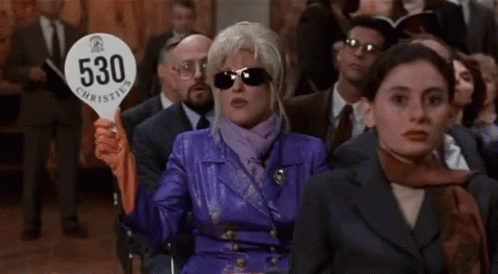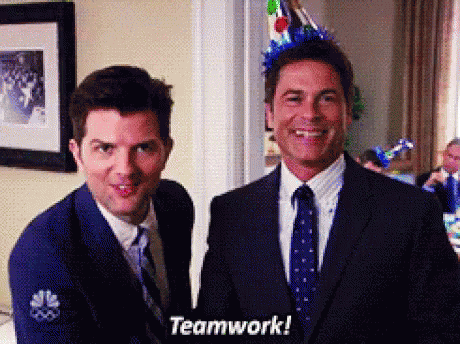Have you ever wondered how it is museums have the things they have? Sure, the stuff might be old - but they haven't always been there and collections are always growing and changing. Donations are a core way we add to the collections, but things don't always come free. From time to time, when we are able to scrape together the funds, curators head to the auction house to bid on a new addition. The problem is... so does everyone else.
Buying at an auction is a terrifying right of passage for the curator. So many things can do wrong even before you arrive for the big day - did you do all the right provenance research, did you get the approval of your spending limit, are the estimates rights, did you feel out the registration, do you have the right photo idea?! Then there you are in the room as the lot numbers are called and the auctioneer leads the bidding - a strange dance of nods and paddles, bidders on the phone, last minute bids placed online. To win your desires lot is thrilling - your colleagues congratulate you as you jot down the final numbers. To lose can be devastating, as you watch the numbers skyrocket beyond the maximum you have on your spreadsheet.
Such was the feeling I had recently at an auction as I watched a painting sail above my maximum limit to an unknown bidder on the phone. But it would fit so perfectly with my collection, I had wanted to use it in an upcoming exhibition, wouldn't it be great for researchers - gone in a flash, with no recourse. It put me in mind of the famous line from India Jones, 'that belongs in a museum!' and indeed it did.
The idea that museums are fancy, privileged institutions with loads of cash to splash out with at Christies or Sotheby's is an incredibly damaging myth with little basis in fact. While some institutions may have a healthy acquisitions budget, for the most part we scrimp and save, beg and plead, pitch for external funding to even have enough cash to bother coming along to an auction. And the worst part is, we go in knowing that we are most likely going to be outbid by private collectors anyway.
Now here is the thing that gets me really riled up - it makes me mad that people buy historic objects for their own enjoyment rather than either letting a museum purchase them. If you are the kind of person who spends your money lavishly at auctions and then donates or long term loans your purchases to a museum - you are my favourite kind of person. Well done you - keep doing your thing. But in the main, as it was at the auction I recently attended, the other bidders with just regular people with a passing interest who wanted to snap up a piece of history for themselves. 'I live in the area so, I thought I'd come down and buy some things since he lived here.' 'I went to the same school as him so - I thought I'd try my hand at collecting.' These are not good reasons to compete with museums for objects.
The problem I think is this. People assume when museums come to buy things we are going to squirrel them away - whisk them back to the big city, away from communities, never do be seen again in our dusty store rooms. In fact, what we are doing is making sure that everyone - including you - will be able to enjoy this piece of history for years to come. Just imagine the pieces bought at auction - held and enjoyed for oh about - 15 minutes. Put on a shelf, trot out at parties. But then forgotten, people get older and pass away, children don't know the significance of their items. Things end up back at auction, or in a local charity shop, or in the bin.
Now you might ask - well how on earth am I supposed to know if a museum wanted this thing? It's not like anyone in the auction room was wearing a big hat saying I WORK FOR A MUSEUM. (Perhaps we should make hats...). Besides, much of what passes through auction houses isn't of interest to museums - it's just nor original enough or significant enough or relevant enough. Here's an easy answer - if you are going to an auction that you think is really cool - why not check with a museum? Your local museum, or just pick a key word 'portrait' 'doctor' 'science' and then google it with the word 'museum' and contact whatever organization comes up informing them of the upcoming auction.
What if more than one museum wants an object? Now this is where I think museums really can be at their best. We do talk amongst ourselves a lot and if we find out we want some similar things, we work it out so we don't bid against each other thereby inflating the price. We discuss our collections development policies, we share our cases, we share our budgets, we make agreements around loans until we come to a mutual agreement. One auction attendee remarked to me 'Ugh, museums - you form little cartels, agreeing who is going to bid on what so the prices stay low.' Um - exactly?! The main thing is it goes into a public collection so everyone can enjoy!
There isn't really a clear solution to many of the issues I raise. Of course people are going to keep buying things at auction, and so they should. Antiques are lovely for your home and for personal interest. In fact - the responsibility here really lies with the auctioneers to recognize museum quality pieces and notify organisations about them - and some do that really well. They ideally also would advise their sellers to consider private treaty sales with museums - so we don't have to compete with the private collectors (who really, let's face it, are always going to have more to spend). They could advise them of the many excellent government schemes which exist to help keep heritage pieces in the public sector. And, to be fair, I do think many auctioneers do this. There are also organisations like Vastari who are helping to link private collectors with museum curators to support public exhibitions - which is a pretty good compromise.





No comments:
Post a Comment